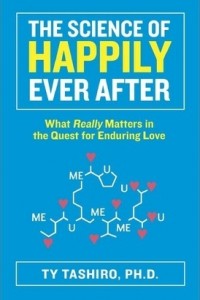 Unrealistic expectations and misplaced priorities are reducing our success rates for long-term relationships, according to psychologist, researcher, and author, Ty Tashiro. His recent book, The Science of Happily Ever After, explores what “advances in relationship science” can teach us about the partners we choose.
Unrealistic expectations and misplaced priorities are reducing our success rates for long-term relationships, according to psychologist, researcher, and author, Ty Tashiro. His recent book, The Science of Happily Ever After, explores what “advances in relationship science” can teach us about the partners we choose.
Almost 9 in 10 Americans believe they have a soul mate, says Tashiro, but only 3 in 10 find enduring partnerships that do not end in divorce, separation or chronic unhappiness. Clearly something is going wrong — and it starts with our expectations.
In his book, Tashiro advocates a new approach to dating, one that is not so much about lowering standards as giving yourself better ones. It’s all about finding undervalued traits and assets in the dating market. And it starts with trying to ignore the superficial indices of value — attractiveness, wealth — in favor of hidden attributes with a stronger correlation to long-term relationship success.
Citing research that finds no reliable link between income level or physical attractiveness and relationship satisfaction, Tashiro steers his readers toward traits such as agreeableness. With married couples, he points out, “liking declines at a rate of 3 percent a year, whereas lust declines at a rate of 8 percent per year,” so the smarter, long-term investment is finding someone you genuinely like. Plus, he adds, studies also suggest that agreeable partners are in fact “better in bed” and less likely to cheat over the long haul.
“The Science of Happily Ever After” is available at Amazon.com





